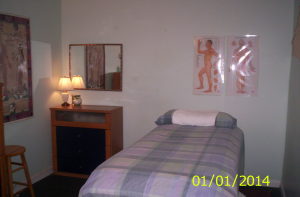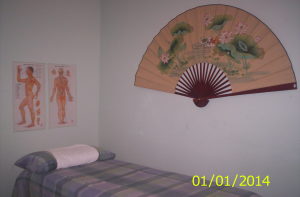Q and A
(Q1) Does it hurt?
(A1) My treatment technique is one of great gentleness. I use extreme caution in needle placement and strive for pain free treatments. I believe an acupuncture treatment should be a pleasant experience and something one looks forward to.
(Q2)How Many Treatments?
(A2) It is recommend that you enter Acupuncture therapy with the intention of taking the complete program that is recommended by your Acupuncturist. If you want to “try one or two sessions to see if it works”, you will not get the full advantage. The National Institute of Health reports that one should see results in approximately ten visits, usually results are seen after only one. Do not rush the therapy, allow your body to heal in its’ own time.
We are all different, as are our diseases and illnesses. Some of us take longer to heal than others. Our health and lifestyles are different. Chronic conditions take longer to heal than acute ones. Research shows in general, the average therapy runs from six to fifteen sessions. There is no set number. It all depends on the progress of the individual. In most cases, relief is felt almost immediately, (not with everyone) and will usually hold for only a day or two. As the therapy continues, the change or relief is more obvious and lasts longer and longer until complete or substantial recovery.
After therapy, if stress or conditions return causing pain or disease to recur, experience shows that those who have taken the recommended therapy, find their body able to adjust itself in a day or two, releasing the discomfort on its own. Should the discomfort last for more than three days, usually one or two treatments will restore balance. It appears the body remembers all those earlier treatments and adjusts itself with only one or two sessions. Some maintenance treatments may be recommended to maintain body’s balance. Some choose to have monthly treatments, while some choose to come at the change of each season.
(Q3) How does Acupuncture Work?
(A3) Science has determined that human beings are complex bio-electric systems. This understanding has been the foundation of acupuncture practice for several thousand years. Energy circulates throughout the body along well-defined pathways. Points on the skin along these pathways are energetically connected to specific organs, body structures and systems. If this energy circulation is disrupted, optimum function is affected and this results in pain and illness. Acupuncture points are stimulated to balance the circulation of energy, which influences the health of the entire being.
(Q4) What does Acupuncture feel like ?
(A4) Prior to their first treatment, most people do not believe that acupuncture can be painless. Different sensations such as warmth or pressure may be felt, but the energetic sensation differs from pain. People often comment that the feeling is unfamiliar but pleasant and relaxing. The acupuncture needles are very fine and flexible (disposable), about the size of a hair. Over the centuries, refined needle insertion techniques have been developed which enable the skilled acupuncturist to place a needle with little or no sensation.
(Q5) What are the Benefits?
(A5) Since acupuncture promotes the body’s natural healing ability, most conditions an be corrected or improved. Oriental Medicine is a comprehensive system of preventive health care and health maintenance. The effectiveness of acupuncture and Oriental Medicine is well documented and extends far beyond the conception that is only useful for chronic pain management or as an analgesic.

